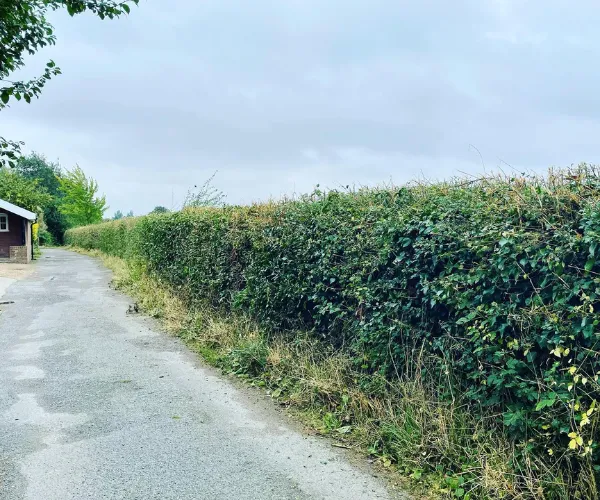Although pine trees are generally considered to be hardy and durable, they are not immune from experiencing health issues and structural problems that require prompt attention and care.
While some minor issues can be resolved with simple DIY measures, certain situations demand the expertise of a professional pine tree surgeon. Familiarisation with the signs and knowing when to seek professional help can make all the difference in preserving the health and longevity of your beloved pine tree.
Dead or Diseased Branches
If you notice dead or diseased branches on your pine tree, it’s essential to take action promptly. Dead branches can become hazardous as they are prone to breaking and falling, posing a risk to people and property. Additionally, diseased branches can spread the problem to other parts of the tree, affecting its overall health.
Depending on the height and location of these dead or diseased pine tree branches, it is strongly advisable to seek professional help with removing them.
Cavities or holes in the trunk
Cavities or holes in the trunk of the pine tree can weaken its structural integrity and make it more susceptible to decay and disease. A certified arborist can assess the severity of the cavities and determine if tree surgery, such as cavity filling or bracing, is necessary to support the tree.
Leaning or Unstable Tree
A pine tree that starts to lean significantly or becomes visibly unstable may require tree surgery. This can be an indication of weakened roots, soil erosion, or structural issues, all of which can compromise the tree’s stability and pose a danger to nearby structures or individuals.
How do I keep my new pine tree healthy?
If your pine tree is currently not showing any of the three common problems listed above, or you’re preparing to plant a new one in your garden or commercial grounds, there are a few easy ways to keep your pine tree healthy throughout the year.
- Proper Planting: If you’re planting a new pine tree, choose a suitable location with adequate sunlight, well-draining soil, and enough space for the tree to grow to its full size without interference from buildings or other trees.
- Mulching: Apply a layer of organic mulch around the base of the tree, but avoid piling the mulch against the trunk. Mulching helps retain moisture, regulate soil temperature, and reduce weed competition, benefiting the tree’s health.
- Light Pruning: For mature pine trees, practice light pruning to maintain their shape and remove any deadwood. Avoid heavy pruning, as it can put stress on the tree and lead to regrowth that may be weaker and more susceptible to disease.
Need professional help with your pine tree?
If you require professional tree surgery for your pine – why not try us, we’ve been tending to trees for over 15 years, so we’re well equipped to take care of your needs!
We also provide tree surgery for commercial grounds and gardens, and have specialist equipment to tackle even the largest, oldest and neglected trees around.
So what are you waiting for? Get in touch with us now for a free quote! Covering Norfolk, Suffolk and Cambridgeshire.
Got other types of tree on your land that need surgery?
Check out some of our other blog posts below:





